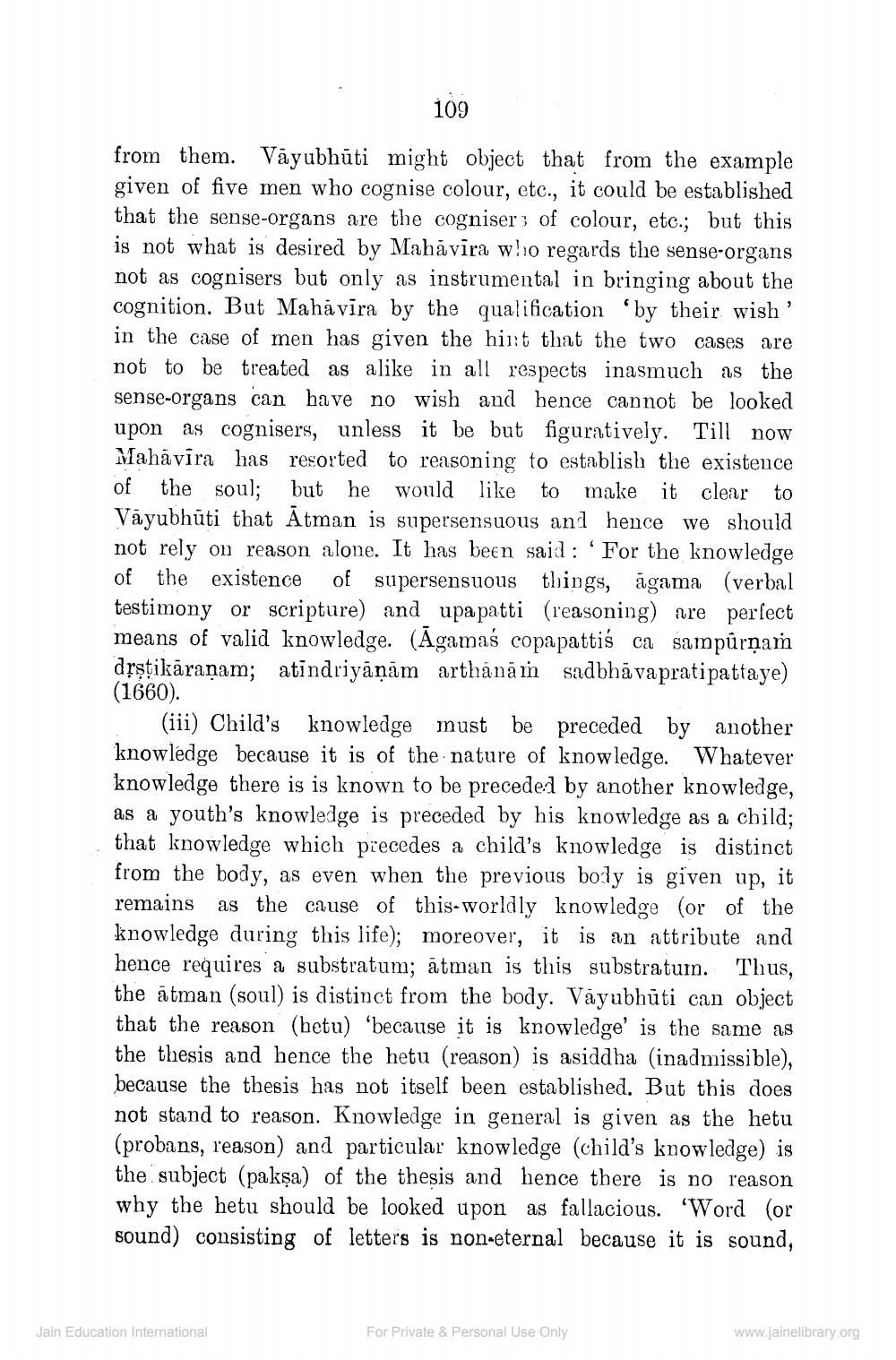________________
109
from them. Vāyubhūti might object that from the example given of five men who cognise colour, etc., it could be established that the sense-organs are the cogniser 3 of colour, etc.; but this is not what is desired by Mahāvīra who regards the sense-organs not as cognisers but only as instrumental in bringing about the cognition. But Mahāvīra by the qualification by their wish' in the case of men has given the hint that the two cases are not to be treated as alike in all respects inasmuch as the sense-organs can have no wish and hence cannot be looked upon as cognisers, unless it be but figuratively. Till now Mahāvīra has resorted to reasoning to establish the existence of the soul; but he would like to make it clear to Vāyubhūti that Atman is supersensuous and hence we should not rely on reason alone. It has been said: 'For the knowledge of the existence of supersensuous things, agama (verbal testimony or scripture) and upa patti (reasoning) are perfect means of valid knowledge. (Agamaś copapattiś ca sampūrņam dịștikāraṇam; atindriyāņām arthánām sadbhāvapratipattaye) (1660).
(iii) Child's knowledge must be preceded by another knowledge because it is of the nature of knowledge. Whatever knowledge there is is known to be preceded by another knowledge, as a youth's knowledge is preceded by his knowledge as a child; that knowledge which precedes a child's knowledge is distinct from the body, as even when the previous bo-ly is given up, it remains as the cause of this-worldly knowledge (or of the knowledge during this life); moreover, it is an attribute and hence requires a substratum; ātman is this substratum. Thus, the atman (soul) is distinct from the body. Väyubhūti can object that the reason (betu) 'because it is knowledge' is the same as the thesis and hence the hetu (reason) is asiddha (inadmissible), because the thesis has not itself been established. But this does not stand to reason. Knowledge in general is given as the h (probans, reason) and particular knowledge (child's knowledge) is the subject (pakşa) of the thesis and hence there is no reason why the hetu should be looked upon as fallacious. 'Word (or sound) consisting of letters is non-eternal because it is sound,
Jain Education International
For Private & Personal Use Only
www.jainelibrary.org




